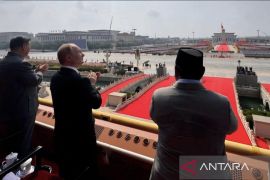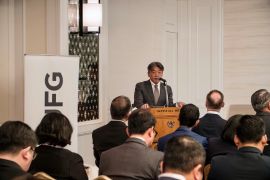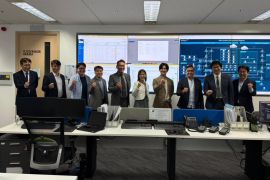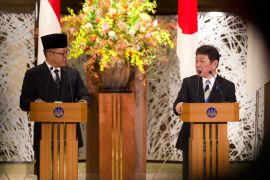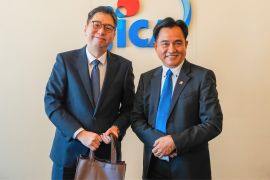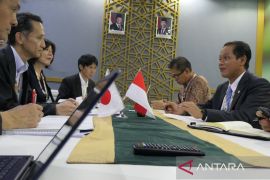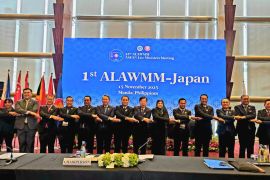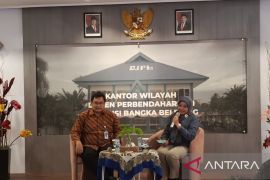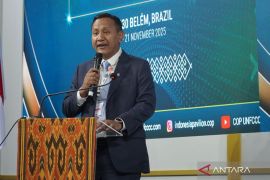"The President has given an opportunity to the Japanese government to submit the proposal," Transportation Minister Budi Karya Sumadi said.Jakarta (ANTARA News) - Japan will submit an initial proposal to cooperate in the revitalization of the Jakarta-Surabaya railway lines, Indonesian Transportation Minister Budi Karya Sumadi said here on Monday.
Based on the results of the meeting between President Joko Widodo and Japanese Prime Minister Shinzo Abe, the Indonesian government has requested Japan to draw up an initial proposal for the project on Javas north coast.
"The President has given an opportunity to the Japanese government to submit the proposal," he said.
Budi said the proposal would also contain a pre-feasibility study and agreement on the investment for the project.
He said the proposal from Japan would later be matched with the results of a study made by Indonesia's National Development Planning Board.
"We will conduct a study, while Japan also submits a proposal, and later the two will be matched," he said.
The minister said the Indonesian government has asked Japan to write an initial proposal as a prudential standard, in view of the value of the project, which is Rp80 trillion.
"This regards the future of the nation's transportation, so we have a prudential standard for it," he said.
Japan had earlier requested a government-to-government cooperation scheme for the project, but the National Development Planning Board has offered other funding options besides seeking funds from the national budget, such as a government to business cooperation scheme.
"The head of the National Development Planning Board has offered a government to business scheme, but Japan is still insisting on a government-to-government scheme," the Director General of Railway Service of the Ministry of Transportation, Prasetyo Boeditjahjono, said.
He added that Japan has continued insisting on the government-to-government scheme, because they considered it to be a quicker route to funding and development.
He said Japan thought it would be difficult to implement G-to-G or Business-to-Business schemes, because Japan knew more about transportation infrastructure development.
He said the greatest possibility for the implementation of the government-to-business scheme was for the procurement of facilities and maintenance, because it would be difficult to return the entire investment for the project.
"This is because the allocation of funding for facilities could reach 80 percent of the total cost of development, and that is huge. How will the investment be repaid?" he asked.
He also said the project, on the other hand, was different from a toll road development project, in which capital return is faster.
"The two projects are far different," he said.
In view of that, Prasetyo said the medium-high speed railway project was the obligation of the government.
"Until now, we have used the national budget as the reference to ease discussions," he said.
He noted that the decision, with regard to the funding of the project, would only be made after the feasibility study and detailed engineering designs were finished.(*)
Editor: Heru Purwanto
Copyright © ANTARA 2017


